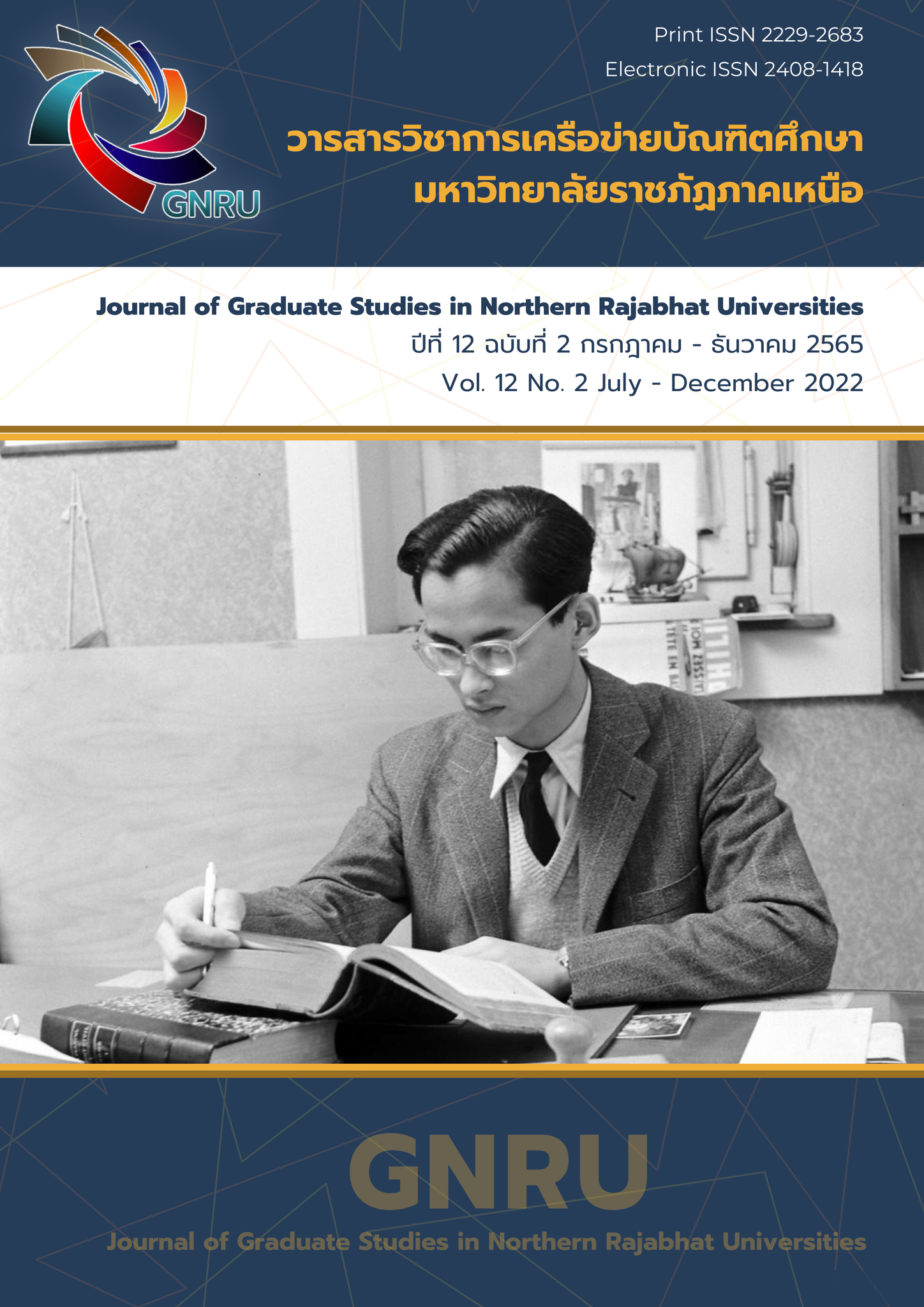Educational Innovation for Development of Teaching and Research
Main Article Content
Abstract
Educational innovation and research is a technical method activities or anything else that the instructor can use in the organization of teaching or learning experience. It could be innovative, re-imagined, or it could be something someone else has invented. The educational innovation management approach consists of 7 areas: training for knowledge creation, innovation production. Promote and support appropriate and modern equipment and technology organize a forum for presentations to exchange knowledge and help. There is a policy to promote the use of innovation in the classroom. Budget for innovation. Setting the number of students in each room to be appropriate so that everyone can use the innovation thoroughly. And motivating teachers to create innovation. There are important steps for creating important innovations, including analysis of learning problems. Education and choosing innovation to solve learning problems Innovative design Innovation. Quality inspection of innovation by experts to verify the effectiveness of the innovation by trial. Techniques for teaching with innovation include demonstrations, small group discussions. Role-playing, case studies, with a teaching and learning management model using information technology such as computers and the internet.
Article Details
References
Ritcharoon, P. (2016). Research techniques to development learning. Bangkok: Chulalongkorn University Press. [In Thai]
Fongsri, P. (2008). Classroom Research: Principles and Practice. 6th Edition. Bangkok: Darnsutha Press Co., Ltd. [In Thai]
Viriyavorakul, P., & Phonak, D. (2014). Google Apps for Education an Educational Innovation in Digital Age. SDU Research Journal, 7(3), 103-112. [In Thai]
Satitpong, P. (2016). Smart Classroom: Educational Innovation in 21st Century. Research and Development Journal, Suan sunandha Rajabhat University, 8(3), 237-254. [In Thai]
Muchimapiro, V. (2014). The Role of Educational Innovation in Learning. Ratchaphruek Journal, 12(2), 1-9. [In Thai]
Ngamprakhon, S., Sangnont, K., & Tanapanyo, P.S. (2018). Learning Management Innovation, Theory to Practice. Mahachula Academic Journal, 5(Special Ed.), 236-244. [In Thai]
Sinthapanon, S. (2010). Innovative Teaching and Learning to Improve the Quality of Youth. Bangkok: 9119 Technic Printing LTD., Part. [In Thai]
Wongwanich, S., Charoensuk, O., & Prasertsin, U. (2011). Research Synthesis Regarding Educational Innovation Development for Teacher Development Based on Education Reform. Retrieve September 17, 2020, from http://backoffice.thaiedresearch.org/uploads/paper/85f4c6d94.pdf. [In Thai]
Bureau of Educational Innovation Development. (2020). Summary of Performance Report of the Research and Development Management Innovation Group. Bangkok: The Agricultural Co-operative Federation of Thailand., LTD. [In Thai]
Prasertsin, U., Jiotrakul, T., & Thongklomsee, J. (2017). A Studying Guidelines of the Educational Innovation Management Used for Improving Teacher’s Teaching and Research. Journal of Library and Information Science Srinakharinwirot University, 10(2), 78-89. [In Thai]
Mykhailyshyn, Halyna & Kondur, Oksana & Serman, Lesia. (2018). Innovation of Education and Educational Innovations in Conditions of Modern Higher Education Institution. Journal of Vasyl Stefanyk Precarpathian National University. 5. 10.15330/jpnu.5.1.9-16.
OECD. (2016). Innovating Education and Educating for Innovation: The Power of Digital Technologies and Skills. Paris: OECD Publishing.
Shelke Trupti & Shrivastva Rajshree. (2018). To study the impact of innovations in education. International Journal of Advance Research, Ideas and Innovations in Technology, 4(3): 10-12.
Valeria Pandolfini. (2013). Innovation and education systems: teachers experiencing Interactive Whiteboards. International Journal of Scientific and Research Publications, 3(10): 1-8.
Celik, S. (2012). Competency levels of teachers in using interactive whiteboards. Contemporary Educational Psychology, 3(2): 115-129.


